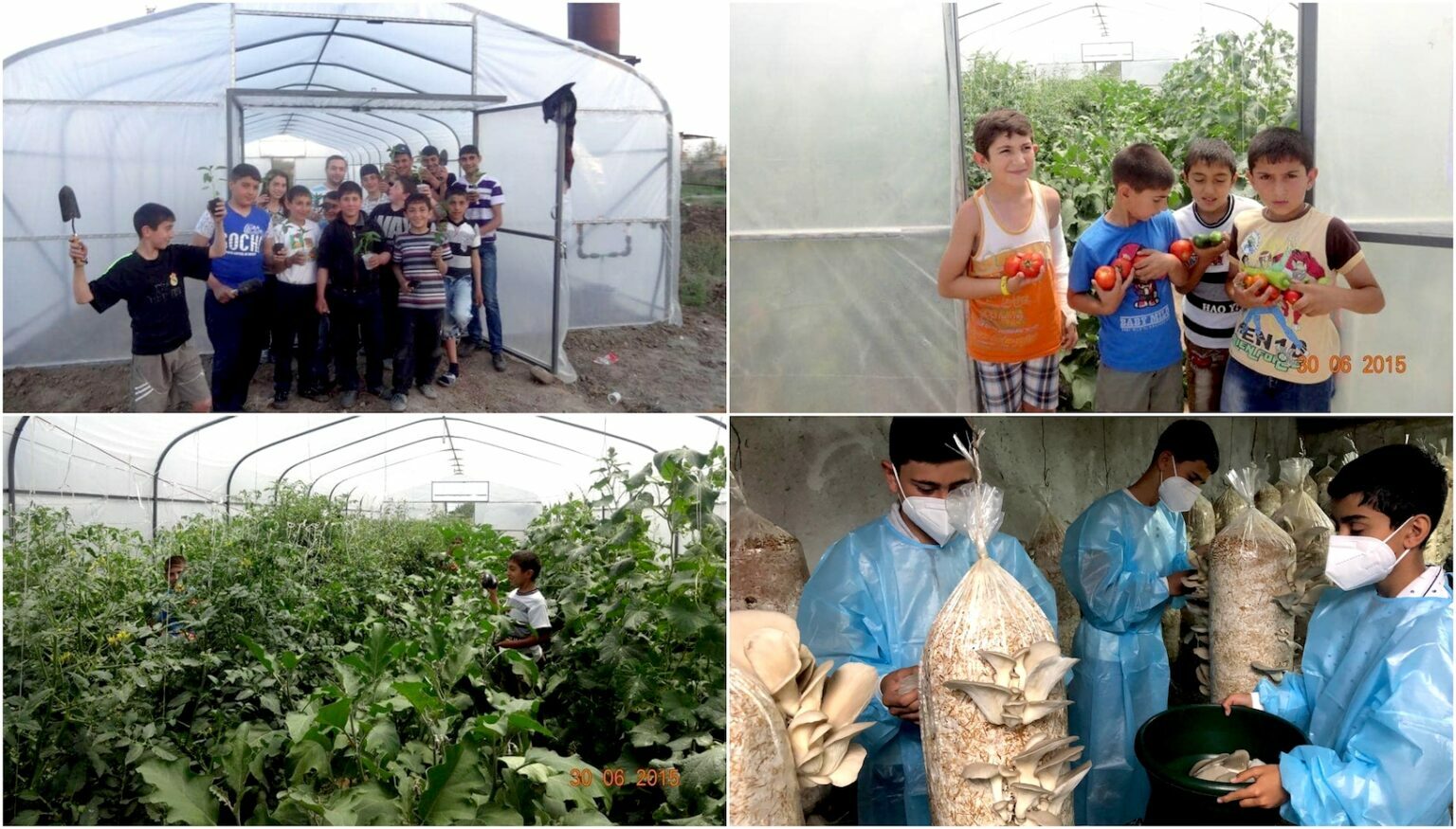During the entire period of study at the only school in the village of Getashen, students master almost all the subtleties of agriculture and leave the school having mastered the skills of this industry.
Since 2011, the headmaster of the school, an agronomist by profession, Gevorg Mukoyan, has turned the 2-hectare area adjacent to the school into a garden, where each student has his own fruit tree. Children take care of fruit trees, grow vegetables, flowers, decorate the territory with the main attributes of Armenian culture - jugs.
“Our school is an agricultural school. When we had a plot, we turned it into a garden, mostly apricots, and set ourselves the task of having as many trees as there were students. After that we set another task: to have as many currant bushes as the amount of students. And we started planting currants between these trees,” says Gevorg Mukoyan. Vegetables are also grown in a specially created greenhouse, which is fertilized with their own organic fertilizer.
“Students not only master the skills of agribusiness or farming, but also receive environmental education. Waste from the garden, the school canteen, most of the weeds go into the humus well, where soft garbage is collected. After processing there, we get vermicompost, which is returned to the garden,” says Gevorg.
The harvested crop is first sent to the canteen, and in the case of large volumes, it is processed and sold. The sale is carried out by decision and under the control of the student, parent and teacher councils.
“We have technicians, gardeners, as well as a tractor, agricultural tools, a truck, a bus. Our students learn in a real environment. For example, during the harvest, they are divided into four groups: purveyors, sorters, sellers, or, as it is now commonly called, marketers and processors who make jam, pita bread, teas, and much more,” says Gevorg, adding that they have a small enterprise, schoolchildren even know how to organize its financial flows. The money from the sale is transferred by the students to the extrabudgetary account of the school through a bank. Thus, they try to make financial flows as transparent as possible, and most importantly, to realize and fulfill their tax obligations as a citizen.
“From this age, they must understand that they have obligations to the state, they must pay taxes to the state from their income. We decide how to use the money received through the student, parent and teacher council. Sometimes we sent the money we earned to charity, sometimes we sent the manufactured products to the soldiers.”
Here, in addition to general education and agricultural education, schoolchildren learn to master various crafts: metallurgy, woodworking, sculpture, carpet weaving and others. Every year, applicants enter the Agricultural Academy from the Getashen school, this year there are four of them.
The students are returning to the village. If they do not work as specialists, then at least they become successful farmers, running their own farm.
“The borders of the state begin with the village and end with the village. What will happen if the village weakens, if we all leave the village and move to the city, if we don’t build houses? If the village weakens, the state will also weaken,” says the headmaster of the Getashen village school.
Based on the Armenian news site MEDIALAB
